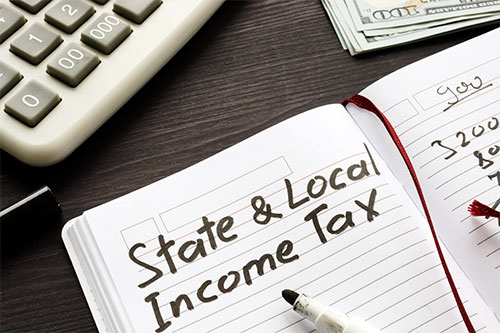Understand the Tax Implications of Remote Work in Different States
While there is nothing new about remote work by employees and freelancers, the practice grew exponentially due to the COVID pandemic. Many businesses moved employees to working from home during pandemic shutdowns. Many others increased their use of independent contractor freelancers through employee attrition.
If you are working remotely as an employee or freelancer, have you checked out whether you owe state taxes in states where you worked that are not your residence state? The answer may not be obvious, as state laws and taxation varyi. Research by the National Association of Realtors found that between March and October of 2020, nearly 9 million people relocated. A survey done for the American Institute of CPAs found than in 2020ii:
- As many as 42% of Americans worked remotely.
- 71% of those workers were not aware that working remotely in other states could impact their liability for income taxes.
- 54% were unaware that the number of days worked out of the state where their physical workplace is located may also impact the amount of state taxes owed.
The survey also revealed that 55 percent of those who have worked remotely during the pandemic were not aware that a failure to change their state tax withholding to reflect their remote work situation could result in tax consequences. Some states have reciprocity agreements between them that simplify the tax situation for out of state work. However, the survey found that 42% of respondents were unsure of whether their state had reciprocity agreements and with which other states.
Tax experts advise that you may have to file a return in another state if it is where your business is located, if you own property there, or if you spend more than half of the year there. The pandemic has added to the confusion, as many states have issued new rules about “nexus,” the term describing a tax relationship between two states regarding remote work. Some states have issued rules that telecommuting does not trigger nexus in their state.
One place where you can see a state tax obligation clearly set out is in the W-2 issued by the employer. There is a section of the W-2 that shows state taxes withheld. However, the Form 1099 used for reporting independent contractor freelancing income does not provide any state tax liability information.
The American Institute of CPAs recommends these actions for the 2021 tax season:
- Compile a list of any states where you have worked remotely in during 2020 and continue to keep a record of all jurisdictions where you have worked remotely.
- Track the number of days worked remotely by state, and if you have not, make your best estimate.
- Depending on the tax jurisdiction, income taxes you may also be liable for taxes for cities, counties, municipalities, school districts or other jurisdictions. Make sure you also track this level of detail.
- Consult a CPA or licensed tax professional – there is no replacement for professional advice.
- Check your state tax withholding.
- Going forward, continue to keep a record of all jurisdictions in which you work remotely.
Taking these steps should keep you out of trouble and avoid any surprises that could include penalties and interest.
i Worked in different states due to Covid? What to know about filing taxes – CNBC.com
ii AICPA/Harris Poll Reveals Many Taxpayers Unaware of State Tax Liabilities Related to Working Remotely – AICPA.org

